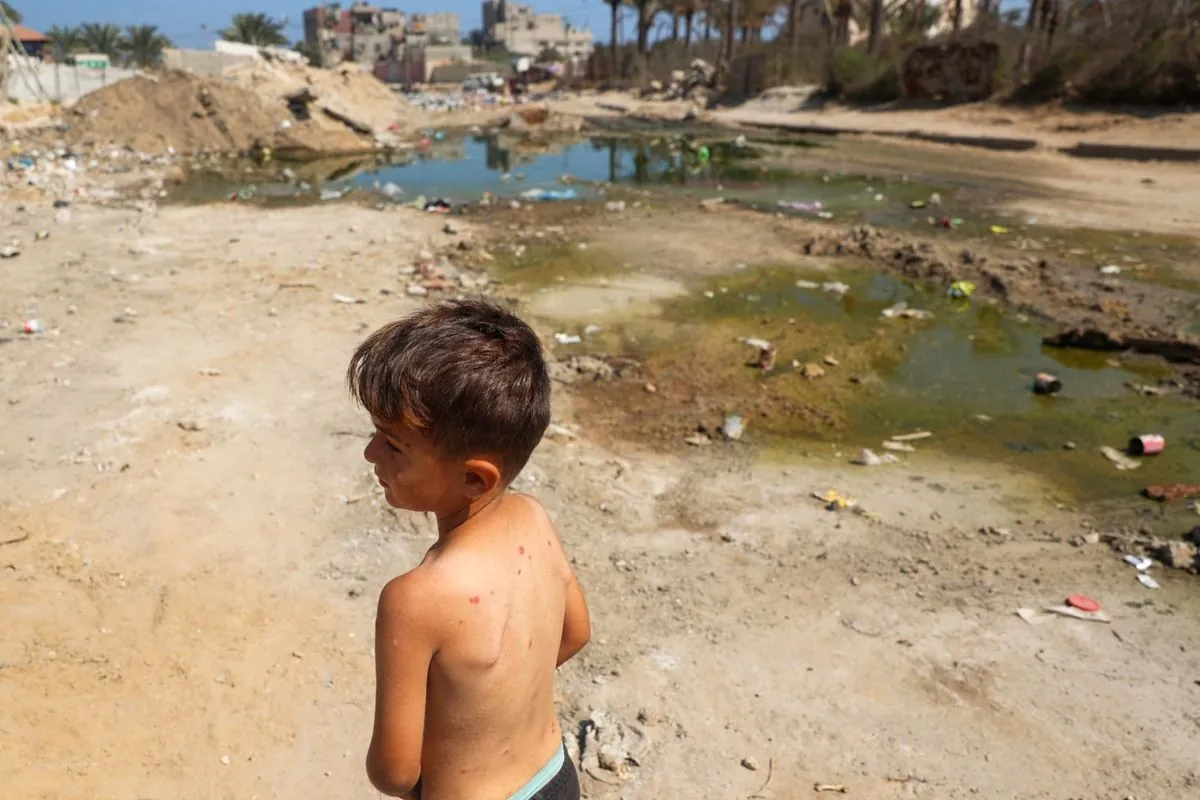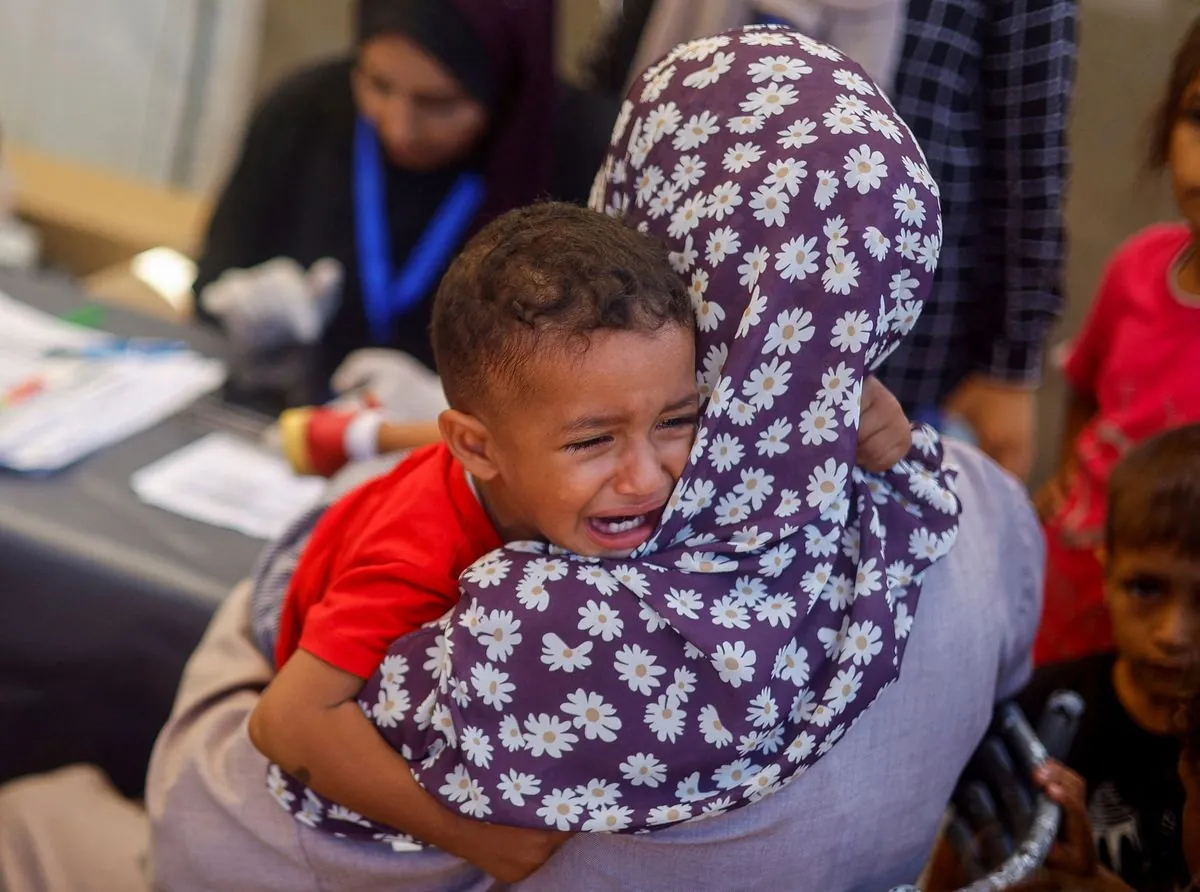UN Urges Gaza Ceasefire for Crucial Polio Vaccination Campaign
UN chief calls for fighting pause in Gaza to allow polio vaccinations amid ceasefire talks. A child tests positive for poliovirus, raising concerns about potential outbreak in the region.

António Guterres, the UN Secretary-General, has called for a pause in the ongoing conflict in Gaza to facilitate a critical polio vaccination campaign. This appeal comes as the United States and its allies express optimism regarding current ceasefire negotiations. The urgency of the situation was underscored when Gaza health officials reported a child testing positive for poliovirus, following its detection in sewage samples.
Guterres emphasized the importance of peace in combating polio, stating, "The ultimate vaccine for polio is peace and an immediate humanitarian ceasefire. But in any case, a Polio Pause is a must." This statement highlights the critical link between conflict resolution and public health initiatives.
The polio situation in Gaza is particularly concerning given its recent history. Prior to the current conflict, Gaza had maintained a 99% polio vaccination rate and had been polio-free for 25 years. However, the ongoing war has led to a significant drop in vaccination coverage to 86%, according to The Washington Post.

Polio, a highly infectious viral disease primarily affecting children under 5, can cause permanent paralysis or death in severe cases. The Global Polio Eradication Initiative, launched in 1988, has made significant strides in combating the disease worldwide. As of 2024, wild poliovirus remains endemic in only two countries: Afghanistan and Pakistan.
The World Health Organization (WHO) and UNICEF are planning two rounds of a polio vaccination campaign in August and September 2024. These organizations have requested all parties involved in the conflict to implement seven-day humanitarian pauses to allow for the vaccination campaigns to take place effectively.
MedGlobal, an aid group operating health clinics in Gaza, highlighted the challenges of safely transporting vaccines in cold storage and reaching hundreds of thousands of children. They emphasized that "a ceasefire, or at the very least a humanitarian pause, is urgently needed to give this urgent polio vaccination campaign a fighting chance."
"Let's be clear: The ultimate vaccine for polio is peace and an immediate humanitarian ceasefire. But in any case, a Polio Pause is a must."
The potential spread of polio in Gaza could have far-reaching consequences. Guterres warned that if left unchecked, it "would have a disastrous effect, not only for Palestinian children in Gaza, but also in neighboring countries and the region."
In parallel with the health crisis, diplomatic efforts for a ceasefire continue. The U.S., Qatar, and Egypt have presented a proposal to Israel and Hamas, aiming to bridge the gaps between their demands. President Joe Biden expressed cautious optimism, stating, "I think we've got a shot," while acknowledging that "just a couple more issues" need to be resolved.
As negotiations progress, the humanitarian situation in Gaza remains critical. The Israeli military has issued new evacuation orders affecting approximately 170,000 people in parts of Deir al Balah and Khan Younis, further complicating relief efforts.
The conflict's toll continues to mount, with the Gaza Health Ministry reporting at least 40,005 people killed and 92,401 injured since the war began. The majority of the casualties are reported to be women and children. On the Israeli side, about 1,200 people were killed in Hamas's October 7 attack, mostly civilians, with 330 soldiers reported killed since the start of the military operation in Gaza.
As the international community works towards a resolution, the urgent need for a polio vaccination campaign serves as a stark reminder of the far-reaching impacts of conflict on public health and the well-being of vulnerable populations.


































